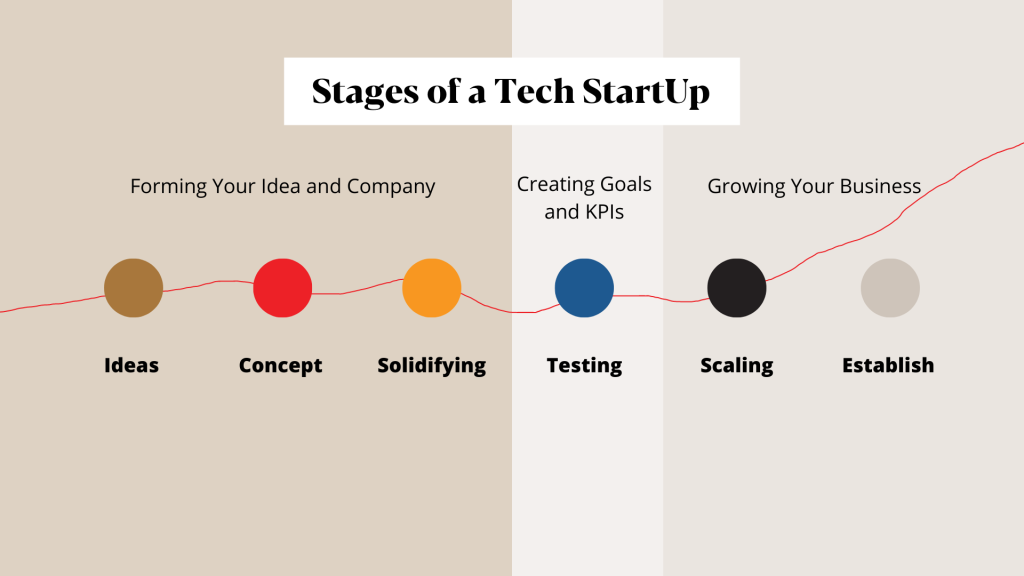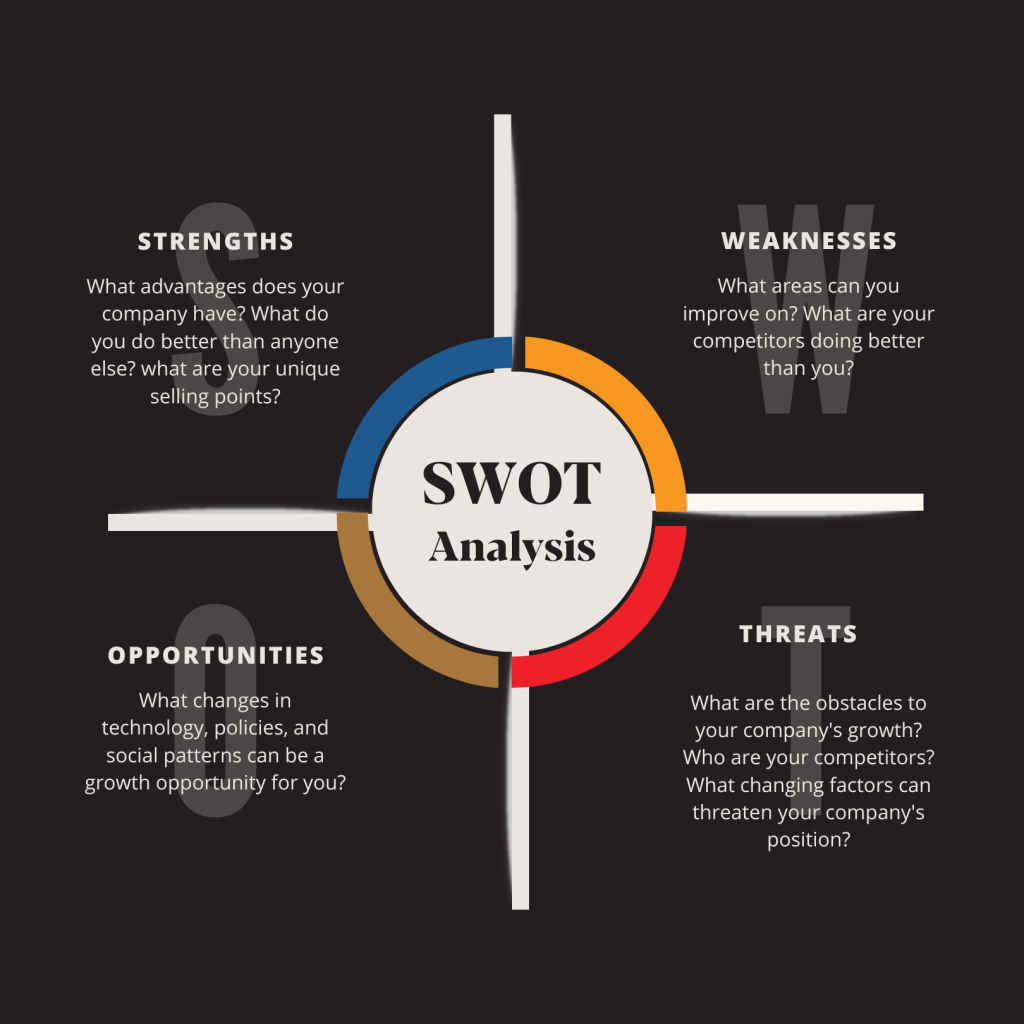

Whether trying to reach everyday consumers to sell a product or service or trying to get bought by a larger company as a start-up, you must place brand value at the forefront. Marketing effectively allows you to build brand equity, helping individuals or businesses acknowledge your unique, premium value within the market. Positive brand equity over time will increase your brand value and the likelihood that you will reach your business goals.
As a tech company, the competition is fierce. Understanding where your unique value is within the market is the most important part as you shape your company and objectives. To do this you will need a robust dataset on your consumers and targets, a diversified client base, processes for operational efficiency, and a marketing plan to increase your overall brand building. All of these steps must happen simultaneously to create exceptional results. After all, you can’t market effectively without the right data on your targets, and you can’t create better operational efficiency without understanding your marketing efforts.

Your potential client, or even a potential investor(s) will need to know that you are intimately aware of where your product or service fits in the market. They will have “many questions to ask when acquiring a business; you can protect value by showing you know your market and regularly research possible change. This shows buyers your business is not standing still and can adapt to change.” Therefore, it will be important to set up processes that help you understand your consumer from the very beginning and how they interact with your brand and product.
Within this, they will also want to ensure that your market has the ability for growth and that your customers are not a stagnant sector. Understanding your market is critical for any tech startup looking to increase their valuation. By conducting market research and gaining insights into your potential customers, you can tailor your marketing efforts to reach the people who are most likely to be interested in what you’re offering.
The first step in understanding your market is to identify your target audience. Your target market consists of the people who are most likely to be interested in your product or service. This might include demographic information such as age, gender, and income level, as well as psychographic information such as interests and lifestyle.
One way to identify your target market is to conduct surveys or focus groups. You can use these methods to gather feedback from potential customers and gain insights into their needs, preferences, and pain points.
Another important aspect of understanding your market is analyzing your competition. This involves researching other companies that offer similar products or services and identifying what sets your startup apart.
You can conduct a SWOT analysis to identify your strengths, weaknesses, opportunities, and threats relative to your competitors. This can help you refine your marketing strategy and identify areas where you can differentiate yourself from the competition.
In addition to surveys and focus groups, tech startups can also use data to gain insights into their market. This might include analyzing website analytics to see where visitors are coming from, which pages they are visiting, and how long they are staying on your site.
You can also use social media analytics to gain insights into your target market. For example, you might use Facebook Insights to see demographic information about your followers, or Twitter Analytics to see which of your tweets are getting the most engagement.
Another way to use data to gain insights is to conduct A/B testing. This involves testing different variations of your marketing materials to see which ones are most effective. For example, you might test different headlines or calls-to-action to see which ones lead to the most conversions.

A strong brand identity can help differentiate your startup from competitors, build trust with customers, and ultimately increase your valuation.
To help develop this identity, you’ll want to engage in a process of self-discovery which might involve asking yourself questions such as:
Once you’ve defined your brand identity, it’s important to communicate it effectively to your target market. This can be done through your website, social media profiles, and other marketing materials. According to Forbes, it’s important to get this right as soon as possible, “An early-stage brand not only provides you tools to connect with others on a deeper level, but also a framework to help replicate those connections as you scale.”
Building and maintaining a strong brand requires engagement with your consumer base. This means listening to your customers, responding to their feedback, and creating a sense of community around your brand.
Social media is a powerful tool for engaging with your audience. By responding to comments and messages, sharing user-generated content, and creating a sense of community around your brand, you can build meaningful relationships with your customers.
Search engine optimization (SEO) is the process of optimizing your website and other digital assets so that they rank higher in search engine results pages (SERPs). SEO is an important part of any organization’s marketing strategy, as it can help you reach potential customers who are searching for the products or services you offer.
To be effective at SEO, you need to understand how search engines work and what factors they consider when ranking websites. This includes things like keyword research, on-page optimization, and link building. You need to stay on top of algorithm changes and updates because “75% of search users don’t bother looking past page one, and the major search engines are influencing up to 88% of business purchase decisions.” Maintaining good SEO practices places you in a much better position to reach your target with your curated messaging, and leaning on SEO marketing campaigns when necessary will help to boost that awareness even further, especially during phases where your company needs to gather as much attention as possible.
Increasing valuation is critical for tech startups because it provides a measure of their overall success and potential for growth. Valuation not only determines the amount of funding a startup can raise, but it also affects the company’s ability to attract top talent, enter new markets, and ultimately achieve long-term success. Harvard Business Review stated that “The foundation for all marketing activities should be creating and nurturing a promise of value to customers. A promise of value (the brand)—and delivery on that promise—is critical if a company is going to differentiate itself from its competitors and stake a solid claim in its intended market.”
For many tech startups, increasing valuation is a key goal, and marketing plays an important role in achieving this goal. By building a strong brand, understanding their market, and developing effective marketing strategies, startups can differentiate themselves from the competition, build trust with customers, and ultimately increase their valuation.
However, increasing valuation is not just about numbers on a balance sheet. It’s about building a successful company that creates value for its customers, employees, and investors. By focusing on marketing as a key component of their growth strategy, tech startups can achieve this goal and create long-term value for all stakeholders.